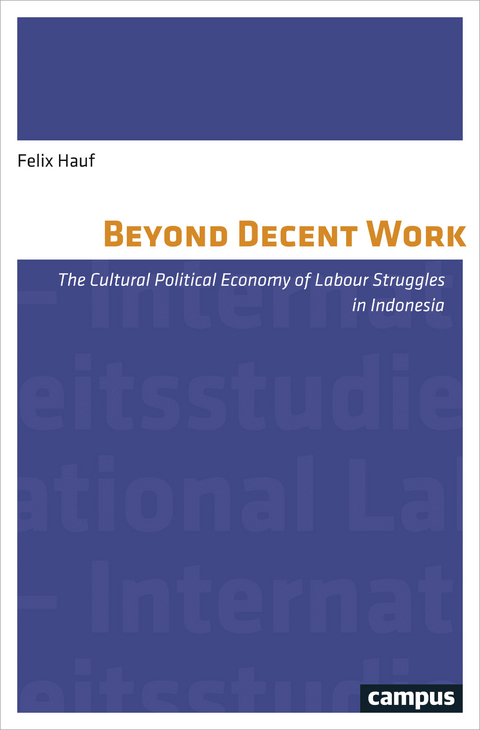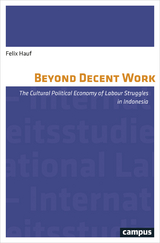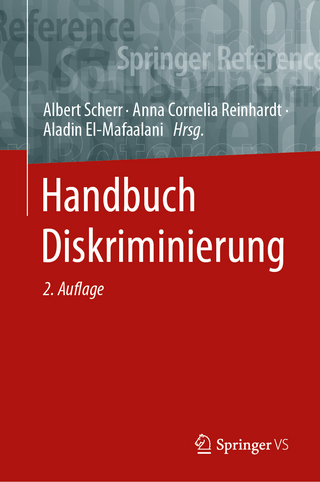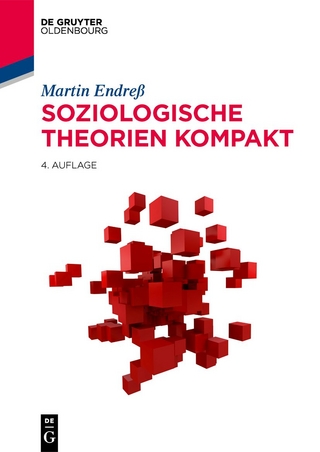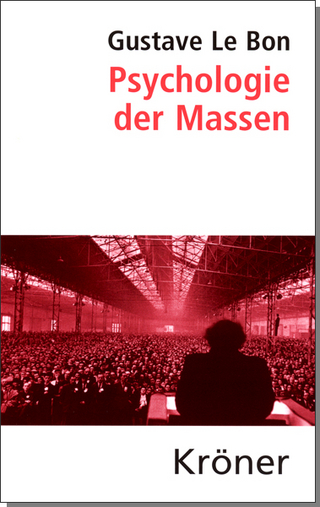Beyond Decent Work
Felix Hauf, Dr. phil., ist wissenschaftlicher Mitarbeiter am Institut für Politikwissenschaft der Universität Frankfurt am Main.
Contents
Acknowledgements8
Figures9
Tables10
Abbreviations11
1. Introduction15
1.1 Research Question and Hypothesis17
1.2 Theoretical and Methodological Framework19
1.3 Historical and Empirical Analysis20
2. From Regulation Theory to Cultural Political Economy23
2.1 Regulation Theory23
2.1.1 Accumulation and Regulation24
2.1.2 Social Forms and Institutional Forms27
2.1.3 The Improbability Question33
2.2 Cultural Political Economy35
2.2.1 Semiosis and Structuration37
2.2.2 Discourse and Dispositive40
2.2.3 Economic Imaginaries50
3. Towards Critical Grounded Theory59
3.1 Critical Discourse and Dispositive Analysis60
3.2 Grounded Theory Methods63
3.3 Critical Realism and Retroduction66
3.4 A Retroductive Model of Critical Grounded Theory69
3.5 A CPE Approach to Decent Work72
3.6 A CGT Study of Decent Work76
4. Neoliberal Globalisation and Labour Regulation90
4.1 A Brief History of Neoliberalism90
4.1.1 The Crisis of Fordism and the Forces of Globalisation91
4.1.2 Neoliberalisation and Feminisation of Labour98
4.2 History of Global Labour Regulation102
4.2.1The ILO in Historical Context102
4.2.2The Social Clause Debate and the Emergence of Private
Regulation104
4.2.3The Decent Work Agenda109
5. Trade Unions and Labour Politics in Indonesia117
5.1 From Independence to the New Order118
5.2 Industrial Relations under Suharto121
5.3 Resurgence of the Labour Movement and Reformasi123
5.4 The Current Situation of Organised Labour135
6. Contested Imaginaries of Decent Work142
6.1 The Better Work Programme142
6.1.1 Better Factories Cambodia144
6.1.2 Better Work Indonesia149
6.2 The Play Fair Alliance158
6.2.1 The Protocol on Freedom of Association160
6.2.2 The Dilemma of Freedom of Association164
6.3 Decent Work from Above and Below173
7. Recovered Imaginaries Beyond Decent Work181
7.1 The National Union Confederation182
7.1.1 Tracing the Emergence of KSN186
7.1.2 The Strategies of KSN189
7.2 The Indonesian People's Movement Confederation192
7.2.1 The Economic Imaginary of Alternative Economies194
7.2.2 Practical Experiences with Alternative Economies195
7.2.3 Radical Imaginaries: Recovered or Travelled?198
7.3 The Solidarity Economy Alternative202
8. Conclusion214
Works Cited227
Index242
1. Introduction Indonesia is one of the Asian countries industrial production has been shifted to after the crisis of Atlantic Fordism. While European and North-American countries-the former "industrial nations"-are transforming themselves into "knowledge-based economies", world market production of industrial goods is now located in countries like China, India and Indonesia. Whereas export production has fuelled rapid economic growth and rising national income, it was underpinned by poverty wages and inhumane working conditions in those world market factories that became to be known as the new "sweatshops". Multinational corporations like Nike and Adidas began shifting their production sites to Indonesia in the 1980s looking for cheap labour (Merk 2011b). In fact, it was Nike in Indonesia that sparked the anti-sweatshop movement in the 1990s after reports about massive human rights abuses in factories producing shoes for Nike had surfaced. The subsequent global campaign against Nike can be considered one of the constitutive moments of the emergence of the broader movement against neoliberal globalisation. Civil society organisations managed to effectively damage the public image of Nike through the tactic of "naming and shaming" (Bartley and Child 2014). Image, today, is a core asset for companies like Nike-selling not only shoes, but a sportive lifestyle of freedom and youth. This image and the picture of young women producing these shoes under hellish conditions were a bad match. Growing consumer pressure endangered Nike's profits. It was only in reaction to these movements that Nike felt the need to introduce one of the first "voluntary codes of conduct" of a transnational corporation (Merk 2011b). Clearly, Indonesia is a critical case when it comes to discussions of workers' rights in the age of globalisation. Today, Corporate Social Responsibility (CSR) is a general feature of the global economy; every global player has a CSR programme. While these programmes are supposed to demonstrate to consumers that the companies are taking responsibility for working conditions along their supply chains, they have been widely criticised for largely failing to deliver on the promise of substantially improving them (Burckhardt 2011). Mere company-side codes of conduct and CSR policies are widely seen as "blue-washing" (John 2011), because they are geared towards improving public image without fundamentally changing their business model in order to enable social improvements. CSR initiatives are voluntary, usually unilateral and not legally binding. Company codes of conduct that have been criticised as mere "window dressing" are increasingly replaced or amended by industry-wide codes, multi-stakeholder initiatives and global framework agreements. Many companies seek to improve the credibility of their codes of conduct by linking them to the core labour standards of the International Labour Organisation (ILO). These are the most commonly acknowledged reference points for the content of codes of conduct-prohibition of child labour, prohibition of forced labour, non-discrimination, freedom of association and the right to collective bargaining (ILO 1998). The ILO as the only tripartite organisation of the United Nations (UN) framework representing governments, trade unions and employer associations is one of the central nodes of a global multilevel governance network of public and private labour regulation. Since 1999, the ILO is organising its activities around the notion of "decent work" (ILO 1999). The decent work agenda is the result of a major revision process within the ILO, developed as a response to the challenges of neoliberal globalisation. Global restructuring processes of deregulation, liberalisation and privatisation transformed the world of work in profound ways, requiring the ILO to adopt a completely new strategic framework for its institutional action (Vosko 2002, 2004). On the one hand, this framework recognises the need to extend labour rights and social protection to groups of workers outside the "standard employment relationship" or at the margins of formal employment systems. The proliferation of informal, precarious, non-standard work or "downgraded labour" (Castells and Portes 1989) has been a central feature of neoliberal global restructuring. The new ILO convention Decent Work for Domestic Workers (ILO 2011a) is an example of the commitment to work towards incorporating marginalised and vulnerable groups of workers in the "informal sector"-mostly women-into the framework of international labour regulation (Schwenken 2012). This move can be seen as a progressive step towards representing the interests of the majority of workers worldwide, rather than protecting the relatively high standards of European and North-American standard employees-mostly men-at the expense of informalised workers. On the other hand, this move also means that the previously existing body of international labour standards has been weakened, because only the most fundamental labour rights have been defined as the core labour standards that the ILO aims to implement around the globe as part of the decent work agenda (Standing 2008). From a scholarly perspective stressing the progressive potential of "decent work", the ILO's agenda may be seen as an element of an emerging post-neoliberal framework of labour regulation (on the notion of post-neoliberalism cf. Brand and Sekler 2009). This perspective is underpinned by the hope that the world economic and financial crisis starting in 2008 may have signalled the end of the neoliberal period and opened up political space to re-regulate the global economy, shift power away from financial markets and reignite productive growth generating new jobs. By now, these hopes have been largely disappointed (Scherrer 2011). Austerity policies in Europe show rather that the crisis has been used by political and economic elites to embark on a further round of "roll-out neoliberalism" (Peck and Tickell 2002) flanked by new social policy discourses (Graefe 2006). 1.1 Research Question and Hypothesis The following question arises: What is "decent work" in this context? Is decent work a discourse that challenges the hegemony of neoliberalism by mobilising counter-hegemonic forces such as progressive trade unions, social movements and activist non-governmental organisations (NGOs)? Is it a flanking mechanism for neoliberalism, adding legitimacy to the neoliberal framework through a largely symbolic appeal to social policy without fundamentally changing underlying power structures and, thus, reproducing neoliberal hegemony? My hypothesis is that it can be both, depending on the context, on who is making use of the decent work discourse in what kinds of practices, for which ends and how. What is new about decent work, it can be argued, is less its actual content in terms of hard law labour regulation than its discursive form that symbolically proclaims the right to decent work for all. Decent work by itself does not codify any new legally binding agreements and subsequent possibilities of sanctions. Rather, it uses moral persuasion and voluntariness to promote compliance with existing conventions (Vosko 2002). What is more important, it creates a new normative framework or discursive order not only for the ILO itself but also for other social actors working on the field of (transnational) labour rights or struggling to improve the working and living conditions of workers worldwide. The domestic workers convention is an example of how a specific network of social movements and institutional actors appropriated the decent work discourse in order to extend existing labour rights to vulnerable groups of workers who have been previously excluded from these rights. Decent work proclaims the "right to labour rights" that can be used by different actors on various scales and sites to claim those rights. On the one hand, decent work can thus be seen as a typically neoliberal soft law instrument lacking force. On the other hand, decent work can be regarded as an "economic imaginary" (Jessop 2004), which symbolically proclaims the right to decent work for all and, thus, opens up new avenues for social actors to struggle for better working and living conditions. If, for instance, emerging unions or union-like organisations within the informal sector, women's organisations and other NGOs are using decent work in order to locally appropriate basic economic and social rights, the platform itself can become a vehicle of counter-hegemonic, post-neoliberal politics. So the initial question can be reformulated: Does the decent work discourse help trade unions, labour NGOs and social movements in their political strategies and everyday practices to struggle for better living and working conditions? In such cases, how do they make use or appropriate the discourse? In other cases, how does decent work relate to alternative discourses, strategies and practices of unions, movements and NGOs? This book aims to contribute to answering these questions, not in the abstract, but by looking at concrete case studies of decent work strategies in Indonesia, with a special focus on the garment, textile and shoes industry. 1.2 Theoretical and Methodological Framework In order to critically analyse the nature of decent work, I conceptualise it as an "economic imaginary" (Jessop 2004). This notion refers to "the semiotic moment of a network of social practices in a given social field, institutional order, or wider social formation" (Jessop and Oosterlynck 2008, 1157-1158). It is a key concept of Cultural Political Economy (CPE) as put forward by Bob Jessop and Ngai-Ling Sum (2001, 2006, 2010, 2012; Sum and Jessop 2013). CPE is a framework under construction combining different conceptual perspectives including regulation theory and discourse theory. I elaborate the theoretical framework of CPE in Chapter 2. CPE aims at "making the cultural turn [within political economy] without falling into soft economic sociology" (Jessop and Oosterlynck 2008), that is, integrating poststructuralist insights about the constructed and contingent nature of discourse into an account of political economy that retains a materialist understanding of the specific contradictions and crisis tendencies of the capitalist mode of production. CPE, therefore, differentiates between semiotic and material dimensions of social relations and puts the interplay between the two at the centre of analysis, aiming at both the interpretation of discourses and the explanation of interdependencies in the "real world" (Fairclough et al. 2004, 24). The underlying ontology and epistemology of CPE is rooted in critical realism, as was the regulation approach before (Jessop 2002). CPE, however, puts more emphasis on "semiosis" defined as all forms of the social production of meaning. The discursive production of meaning is understood as historically contingent but not as free-play of signs and symbols as more radical approaches to social constructivism would have it. Rather, it has to correspond to the material world in an "organic" way in order not to appear as "arbitrary, rationalistic and willed" (Jessop 2010, 345); in other words, it must meaningfully relate to the "decisive nucleus of economic activity" (Gramsci 1971, 373) within social relations. Discourses are embedded and enacted within specific practices, projects and strategies of particular actors with particular interests, rather than being the disembodied circulation of differences without subjective agency. Researching economic imaginaries, therefore, requires more than discourse analysis alone. Methodologically, discourse analysis tends to focus on the discourse itself by looking at discursive artefacts such as a corpus of texts. Critical Discourse Analysis moves beyond the dimension of the discursive and looks at the material and historical context of discourses (Fairclough 2005), but the non-discursive context is included as an explanans, not as an explanandum. This research project is interested in how specific actors are using a certain discourse practically; it can thus not rely on Critical Discourse Analysis alone. If the research interest is primarily located on the discursive level, the research object "can be studied productively with the tools of semiotic analysis (especially, for CPE, those of critical discourse analysis)" (Jessop and Sum 2012, 86). However, "the 'imaginary' refers not only to semiosis but also to its material supports and this requires a broader toolkit" (ibid.). In my case, it requires ethnographic fieldwork in Indonesia; it requires interviewing trade unionists and NGO activists in order to gain insight into their political strategies and everyday practices. Therefore, the broader methodological toolkit for this project has to include tools and techniques for generating and evaluating ethnographic data as well as for using empirical findings to reconstruct existing theory. Claes Belfrage and I have proposed Critical Grounded Theory (CGT) as one possible way to introduce grounded theory's strengths in empirical and ethnographic work into a research framework that, like CPE, is critical and particularly theoretical in nature (Belfrage and Hauf 2015). In Chapter 3, I elaborate CGT as the methodological framework for this study. 1.3 Historical and Empirical Analysis Before analysing the empirical data, I provide a brief outline of the historical context of my research topic in Chapters 4 and 5. First, it is necessary to recount the history of neoliberalism from a labour perspective as a response to the crisis of Fordism that was geared towards restoring capital's profitability and underpinned by the weakening of the organised labour movement (Albo 2009). Global restructuring processes like the internationalisation of production, the liberalisation of international trade, the deregulation of financial markets and the neoliberal roll-back of the welfare state have contributed to the present international division of labour. Transnational supply chains have emerged, in which women workers in the Global South are relegated to the lowest echelons of a global labour market hierarchy deeply divided along gender, ethnic and citizenship lines. Labour-intensive industries such as garments and clothing were the first to be relocated from industrialised to developing countries and it was primarily young women that were drawn into the new world market factories, often located in "export processing zones" where labour rights were suspended and unionising activities suppressed. What became to be known as the "feminisation of labour" (Standing 1989, 1999)-rising women's participation in the labour market as well as proliferation of precarious, unprotected, low-wage (formerly typically female) work-was underpinned by the assumption that women workers are not only cheaper, but also more docile and less likely to unionise (Salzinger 2004). This global perspective is necessary to provide some background knowledge about the larger macro processes pertinent to the local context of my research. By the same token, I secondly and also very briefly outline the history of international labour regulation from the beginning of the ILO, passing through its cold war phase and focussing its development from the crisis of Atlantic Fordism to neoliberal globalisation, in order to contextualise the decent work agenda within the history of the ILO. In Chapter 5, I spotlight the history of organised labour in Indonesia from the militant mass organisations of the independence period and the violent repression under Suharto to the reigniting of an independent, democratic labour movement in the Reformasi era. Then, the current situation of organised labour in Indonesia is illuminated. I look at strategic priorities of trade unions and the recent upswing in militant labour activism, leading in some cases to substantial wage hikes. I argue that mass demonstrations, large-scale strikes and other "traditional" (albeit from today's vantage point "radical") working class strategies are more effective in terms of raising wages than "social dialogue" strategies promoted by the ILO. These moderate strategies are useful in contexts of institutionalised national class compromises (as in central Fordism) and they presuppose a certain balance of power between capital and labour. In a neoliberal context of transnational (buyer-driven) supply chains, however, workers lack economic bargaining power in isolated negotiations with the employers. Given the huge power imbalance, "social dialogue" strategies are here disadvantageous to workers. The radical strategies, directed to the state and especially local governments, are sources for political union power, serving as a substitute for economic power in this particular context. Chapters 6 and 7 are the centrepiece of my empirical analysis. I com-pare two different approaches towards decent work in Indonesia's garment, textile and shoes industry in terms of how the decent work discourse is being put into practice and how the meaning of decent work varies in different contexts: a) the Better Work Indonesia project of the ILO and the International Finance Corporation (IFC) exemplifying a top-down "decent work from above" imaginary primarily addressing employers and their needs to demonstrate Corporate Social Responsibility and b) the Play Fair Alliance as a regional multi-stakeholder initiative typical for a more deliberative, bottom-up "decent work from below" imaginary addressing all stakeholders and facilitating social dialogue among them. These two approaches are juxtaposed as contested economic imaginaries of decent work and c) complemented by an analysis of labour unions and social movements in Indonesia envisaging alternative imaginaries beyond "decent work" such as "alternative economies", taking the Indonesian People's Movement Confederation (KPRI) as a case study. The final Chapter 8 summarises the results and ends with some concluding remarks about the paradoxes of decent work. 2. From Regulation Theory to Cultural Political Economy This chapter is dedicated to the general theoretical approach of this study-Cultural Political Economy (CPE). First, I introduce basic concepts from Regulation Theory that serve as theoretical foundations of CPE's general view of capitalist accumulation, social regulation and their embedded contradictions and crisis tendencies. Second, the most important concepts of CPE itself are discussed, including semiosis and structuration, discourse and dispositive, economic imaginary as well as hegemony, sub- and counter-hegemony. 2.1 Regulation Theory Before turning to Cultural Political Economy, it is necessary to remember the historical and academic context of its emergence. CPE can be seen as an answer to the crisis of and as a successor to Regulation Theory. At least the variety that is of interest here, the critical CPE strand as developed by Bob Jessop, Ngai-Ling Sum and others (cf. Sum and Jessop 2013), clearly grew out of discussions about regulation and state theory and how to perform the cultural turn within a critical political economy framework that, like Regulation Theory, has freed itself from a dogmatic relationship with traditional or orthodox Marxism while retaining the key concepts of the Marxian critique of political economy (Nadel 2002, 28). I introduce the concepts of accumulation regimes, modes of regulation, social and institutional forms before discussing state and hegemony and some conceptual shortcomings. 2.1.1 Accumulation and Regulation Regimes of accumulation The regulation approach has developed concepts for analysing stability and change or structures and dynamics of those societies in which the capitalist mode of production prevails. It allows for dividing the development of the capitalist world system into different periods and for analysing the accumulation of capital in its historic-concrete forms. Marx had analysed the accumulation of capital in its most abstract form-as the "automatic expansion" (Marx 1890, 169) of value. In the three books of Capital, his project is a presentation and critique of the capitalist mode of production in its "ideal average" (Marx 1894, 839). This kind of presentation may determine in the abstract the fundamental forms of capitalist societalisation (Vergesellschaftung) such as value, commodity, money, capital and accumulation, which are characteristic for all phases of capitalist development. It is necessary to retain a Marxian understanding of these categories, for CPE indeed, in order to remember basic facts about the specific materiality and contradictions of capitalism, regardless of their historic-concrete forms. To summarise while simplifying, capitalist production in general is production for profits, not needs; capital can only exist within the constantly renewed movement of its own accumulation; accumulation therefore is limitless, but always endangered by its own crisis tendencies, which are based on capitalism's internal contradictions and barriers. This abstract knowledge is however insufficient for concrete analyses of historically specific conjunctures or of different modes of accumulation varying from country to country or between historical periods. Therefore, Regulation Theory has developed the concept of accumulation regimes to signify the historically specific mode of capitalist production that secures a more or less coherent correspondence between social norms of production and social norms of consumption, thereby rendering the self-expanding movement of capital relatively stable over a certain period of time (Hirsch 1995, 49).
| Erscheinungsdatum | 02.09.2016 |
|---|---|
| Reihe/Serie | Labour Studies ; 14 |
| Zusatzinfo | 7 Abbildungen |
| Verlagsort | Frankfurt |
| Sprache | englisch |
| Maße | 141 x 214 mm |
| Gewicht | 309 g |
| Themenwelt | Sozialwissenschaften ► Soziologie ► Allgemeine Soziologie |
| Sozialwissenschaften ► Soziologie ► Mikrosoziologie | |
| Sozialwissenschaften ► Soziologie ► Spezielle Soziologien | |
| Schlagworte | Arbeit • Arbeiterbewegung • Arbeitskampf • Gewerkschaft • Indonesien • Indonesien; Politik/Zeitgesch. • Industrie- u. Betriebssoziologie / Wirtschaft • Soziologie |
| ISBN-10 | 3-593-50644-0 / 3593506440 |
| ISBN-13 | 978-3-593-50644-9 / 9783593506449 |
| Zustand | Neuware |
| Haben Sie eine Frage zum Produkt? |
aus dem Bereich
